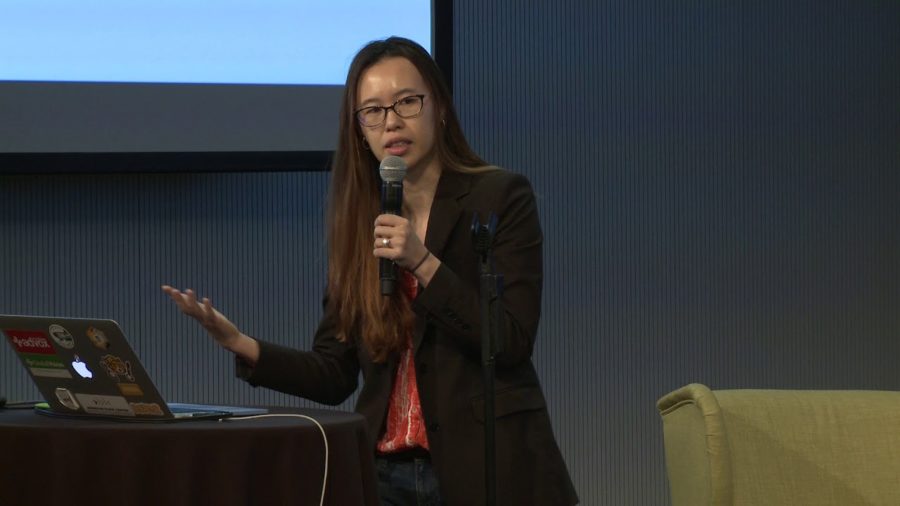Amy X. Zhang: I’m Amy Zhang. I am a graduate student at MIT. And I’m going to be talking about about Squadbox, fighting harassment with your friends.

Okay. So, as Lindsay mentioned, online harassment is a huge problem today. Pew and Data & Society have done reports that show that 40 to 50% of people online experience online harassment. That’s a huge number of people.

And over the last about a year and a half, I and my colleagues have been interviewing people who have been recipients of harassment to learn about their situation. So, these are not the actual people, but just to give you a sense of the diversity of people we talked to. Anywhere from YouTube celebrities with hundreds and thousands of followers, to journalists, climate scientists, activists, all the way to just regular people who are harassed by a single ex partner, for instance.
And unsurprisingly, looking at this diversity one of the things I quickly came to realize was just how different each case was. So, people had themselves very different ideas about what was harassing to them and what they did not want to see. They also had really different preferences for what they wanted to do in response to harassment. So, for instance some people wanted to respond to their harassers or wish their friends could respond to harassers. Other people just were saying don’t feed the trolls. Some people were wanting to actually see their harassing messages, because they wanted to keep a tab on the harassment. Other people didn’t want to see it at all. And so much of this was so contextual to the kind of harassment that they were getting as well. And that was also really varied.

So one thing that did come up over and over again in our interviews was the importance of friends and community. (Similar to HeartMob.) There were people who were friends of these people experiencing harassment who understood their situation deeply and understood their needs, and were there to help them. So doing things such as having the person who’s getting harassed giving their password to their friend so their friend can go in and clean up their inbox for them. Or another case we had, a friend who had their partner scroll through their YouTube comments and read aloud to them the affirming comments only.
So, hearing about these practices we began to wonder how can our existing communication systems actually support this kind of interaction? Because you know you generally don’t want to give your password away to other people, even if they’re your friends. So how might communications systems be designed to make it easier for you to call upon your friends, or loved ones, or your community for help?
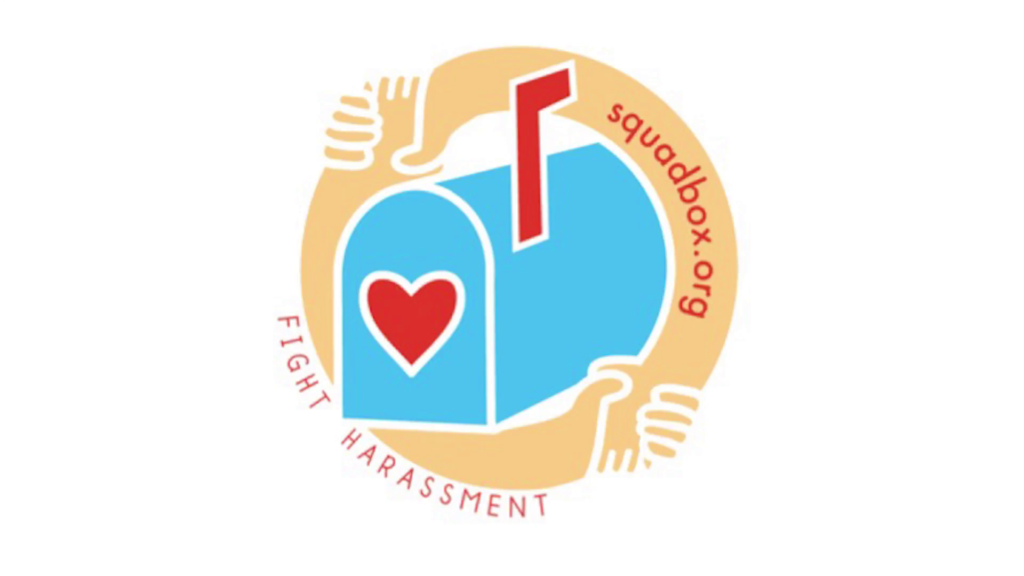
So to explore this question further and to really capitalize on a need that we felt was really missing out there today, we built this tool called Squadbox and you can check it out at squadbox.org. It’s a tool built for email currently, because as it turns out there are no reporting structures for Gmail and most of these email platforms whatsoever. But we are also hoping to expand to more platforms. And the idea is basically a way for you to recruit friends to join a “squad” that then helps moderate your inbox of harassment.
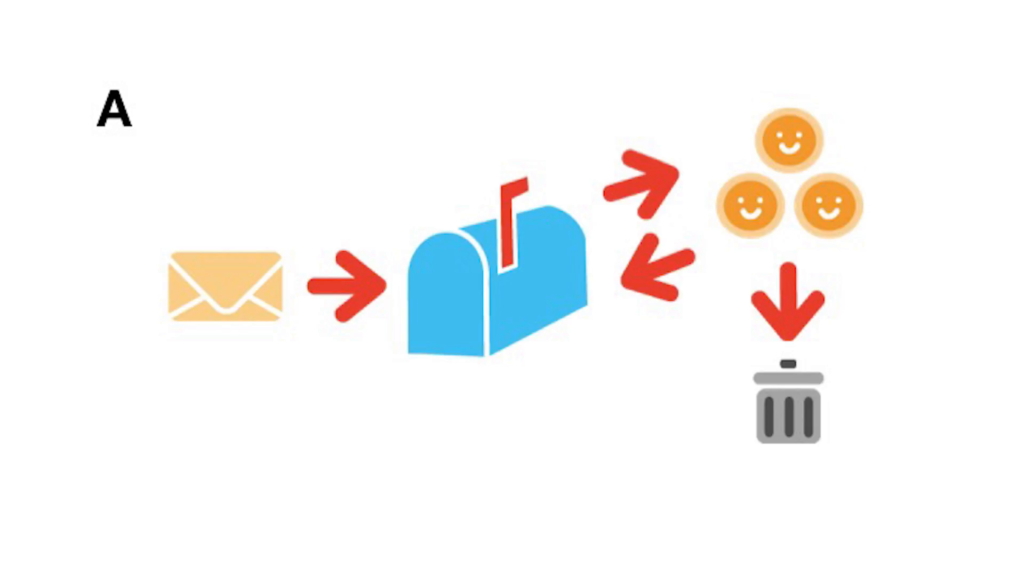
So, one way it works is if you are getting harassed in your current email unexpectedly, we help you set up filters so that stranger emails, that could be harassing/could not be harassing, get forwarded to your squad who then go through the messages and decide what to return to you and what to do with harassing messages if they find one, such as trash it or give it a tag, or redact it, or put it in a folder, or perhaps even respond to the harasser for you. And you can tell them, if you’re using the tool, what you’d like your squad to do for you.
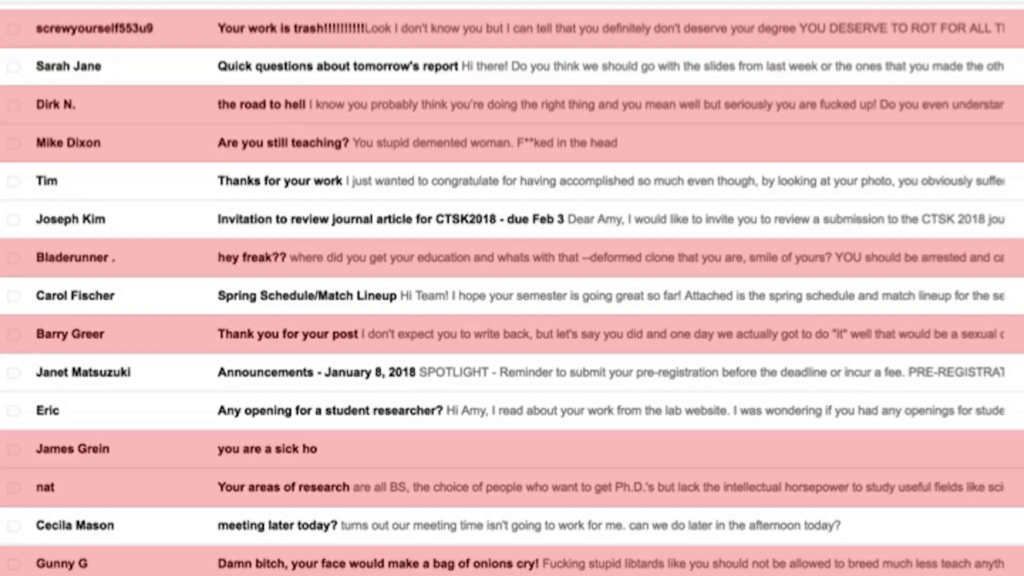
So you know, just as an example, the ability to move harassing content out of the way of one’s inbox was really important. Because we heard from so many people that talked about going to their inbox, having this horrible feeling of having to sift through harassing messages that were mixed in with emails from their boss or from their friends. Or in some cases getting so much harassment it’s basically a denial of service attack on their own communication.
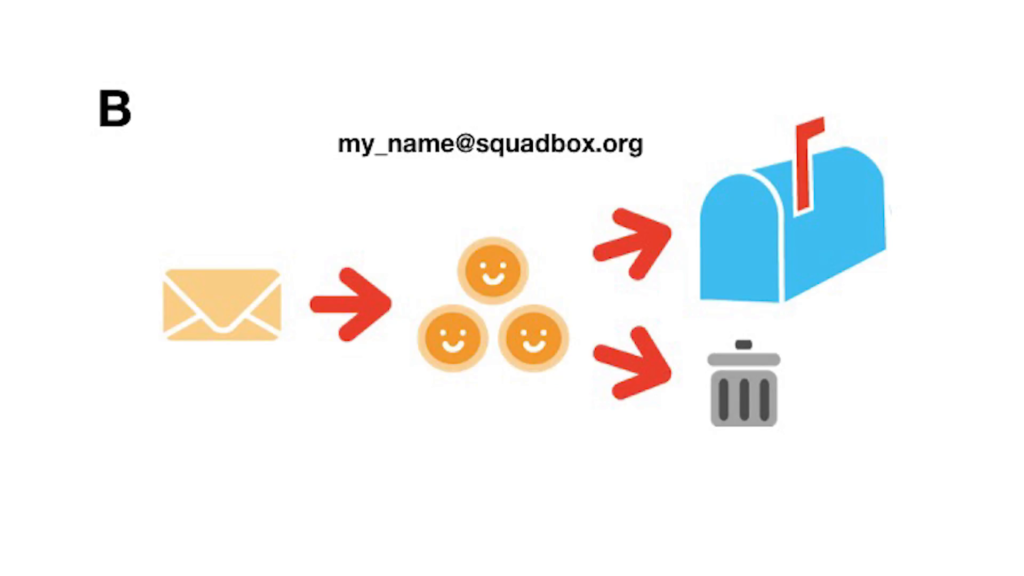
A second way you can use Squadbox is we also give every Squadbox user a dedicated email address, so that any emails to that address first go to your squad. And we found this was really important for people who had a public presence or wanted a public presence and give out their contact info to strangers, but are worried about getting harassed.
Beyond that, there’s a bunch more features to Squadbox to make it easier to use. I won’t go over all of them in detail, but we have shortcuts for Gmail users who are getting harassed. For squad members, we’ve added things like collaborative blocklists, so now your squad can help you make a whitelist and blacklist. We help check for spoofing. We have an integration with Jigsaw’s Perspective API, which detects harassment.
So just to close and give a sense of how much friends really care about helping people with harassment, we talked to a friend of someone who was getting harassed and they said,
If I could help in any way, shape, or form, I would do that, no question… It’s really difficult to watch someone that you care about so much go through this, and to be by-and-large helpless…to have a tool at my disposal that would help even in the smallest way, I would leap at a chance to do that.
[slide]
So, friends. So, I know many people are thinking about harassment with online communities here. As I said, we’d really like to roll this out to other platforms and think about other forms of collaborative moderation. So for instance, collective reciprocal efforts where a group of people are maybe all moderating for each other. And with that, this is the web site. If you have more questions, feel free to email or contact me. Thanks.
Further Reference
Squadbox: A Tool to Combat Email Harassment Using Friendsourced Moderation, paper by Kaitlin Mahar, Amy X. Zhang, and David Karger
Gathering the Custodians of the Internet: Lessons from the First CivilServant Summit at CivilServant
